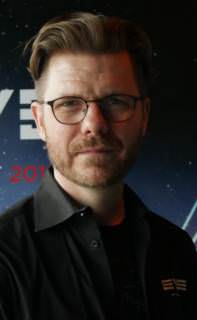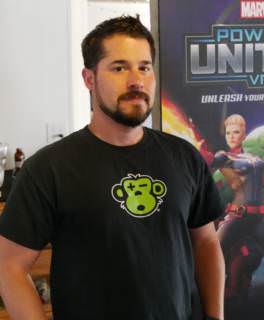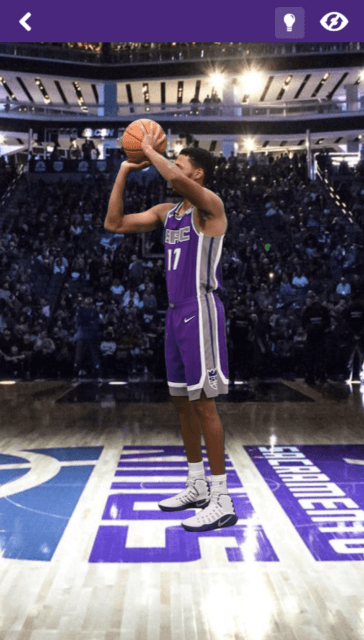Rodrigo Samwell is the new chief marketing officer for ESL. In a corresponding move, ESL also hired Martin Hubert as chief revenue officer.
“This is an exciting time for the global esports industry with ESL at the heart of this massive ecosystem,” said Ralf Reichert, ESL’s president and global CEO. “These new executive hires reflect the company’s global focus to better service our growing roster of partners, publishers and sponsors, and add expertise in key areas such as marketing and sales. We are excited to welcome Martin and Rodrigo to the team.”
Pinterest expects to make $3 billion in revenue next year, so it has snagged Jon Alferness and Meredith Guerriero to help develop new ad formats and targeting.
Alferness has been named head of ad products at Pinterest. He formerly was Google’s vice president of product management of shopping and travel products.
“We’re excited that Jon has joined Pinterest. He brings significant product experience to the company, including deep e-commerce domain knowledge and expertise across search and display advertising,” Pinterest president Tim Kendall said in a statement. “Jon will make an immediate impact as we continue to roll out more ad solutions that deliver strong, measurable results for our partners.”
Guerriero has been tapped as Pinterest’s head of eastern region partnerships and head of the company’s New York office. Guerriero formerly was at Facebook, where she was director of health, grocery and politics ad verticals. Previous to that, she spent nearly a decade at Google for in a variety of roles.
MusclePharm announced the hiring of CMO Matthew Kerbel. In a corresponding move, Paul Anton was named vice president of finance.
The performance lifestyle sports nutrition company noted that Kerbel will be “responsible for directing and executing brand strategy to support MusclePharm’s growth both domestically and internationally, continuing to engage the company’s core audience, while identifying innovative ways to reach a growing cohort of vegan and recreational athletes. Kerbel will also oversee the management and implementation of all current and future brand athlete and influencer agreements.
“Matt harbors a deep understanding of the messages and values that resonate with our target audiences,” said Ryan Drexler, president and CEO of MusclePharm. “Moreover, he truly cares about delivering an excellent and authentic product. His enthusiasm for the fitness industry combined with his notable expertise in conceptualizing and implementing impactful consumer marketing strategies, make him an ideal fit for MusclePharm.”
“The opportunity to join MusclePharm is congruous with my passion for working with dynamic and forward-thinking businesses,” said Kerbel. “MusclePharm is already a global company with strong brand equity and, as evidenced by the recent launch of the Natural Series, is highly attuned to the evolving needs of consumers. The Company has reached a critical inflection point in its history, and this is therefore an extremely exciting time for me to come on board.”
Fred Graver has been hired to serve as the senior vice president of digital content and social for Discovery Digital. Gaver formerly was the global head of television creative for Twitter.
“I am thrilled to have Fred join the Discovery Digital team,” said Karen Leever, executive vice president and general manager of digital media at Discovery. “He brings with him a wealth of experience and a passion for the Discovery brands. As a creative visionary, he is perfectly suited to drive our networks’ digital and social strategies forward as we continue to pursue our goal of creating iconic Discovery content for audiences across all platforms.”
Travis Howe has been hired by ESPN to serve as senior vice president of digital ad product sales and strategy. Howe will be responsible for establishing the go-to-market strategy for ESPN’s digital advertising business moving forward to enhance the overall ESPN Platform. He will report to Ed Erhardt, ESPN’s president of global sales and marketing.
“Travis is an outstanding and creative executive who has the vision to identify, develop and execute our key priorities for the digital sales team,” said Erhardt. “His expertise and thorough understanding of the evolving digital media marketplace will help enhance and drive the entirety of our portfolio.”
Former SYCO Entertainment executive Mark Brittain has been appointed as Gfinity’s new chief commercial officer. Brittain will be responsible for creating brand partnerships and grow the esports events company’s exposure among traditional media channels.
“Securing Mark’s services is a real coup for us,” said Neville Upton, Gfinity’s CEO. “His background with global successes such as X-Factor and the Got Talent series will prove invaluable in securing strategic partnerships and driving significant revenue for the company.”
“When I looked at the metrics for esports I knew it was a sector I wanted to be involved in,” said Brittain. “With its global footprint encompassing multiple touch points, Gfinity already offers its commercial partners a great route to engage with a young and passionate audience. The recent launch of the Challenger and Elite series, expands Gfinity’s reach and opportunities for brands both here in the UK and across the globe. And I genuinely feel that esports is one of the most exciting entertainment sectors in the world right now.
Marco Raab is leaving his position at Red Bull to join Escada and lead all marketing and communication activities for the German designer brand. Raab previously was at Red Bull for 10 years, most recently working as global marketing manager for special projects for the beverage company.
Josh Kovolenko has been promoted to senior vice president of marketing strategy and operations for Discovery Channel, Animal Planet and Science Channel, the company announced. The executive will oversee marketing strategy, partnerships group, marketing production teams and the marketing on-air operations for all three networks.
“Josh is an incredible leader, and one of the hardest working people I’ve had the pleasure to work with,” said Lara Richardson, group executive vice president of marketing at Discovery Channel, Animal Planet and Science Channel. “I am overjoyed to have his knowledge and skill set across all three nets.”
Antitrust attorney Michael Hahn has been hired to serve as the Interactive Advertising Bureau’s (IAB) senior vice president and general counsel.
Formerly a partner at Lowenstein Sandler LLP, Hahn will handle legal matters for the trade groups, including antitrust compliance, intellectual property rights and general corporate and contractual matters. He will also be responsible for serving as an advocate for the digital advertising industry on legal matters affecting members of IAB and IAB Tech Lab, it was announced.
“We have already been impressed by Michael’s legal acumen, as well as his deep understanding of advertising technology,” said Alanna Gombert, senior vice president of technology and ad operations for IAB and general manager of the IAB Tech Lab. “Having him come on board full-time will prove invaluable as we engage further in driving technical standards across the complex global landscape.”
“I am excited about taking on this new role with IAB and IAB Tech Lab—organizations’ at the nexus of digital marketing in the US and across the globe,” said Hahn. “I am eager to bolster their missions and provide meaningful legal counsel on key issues that impact their constituents and advance the industry-at-large.”
Mobile esports company Skillz announced the addition of 18-year gaming veteran Kent Wakeford to its board of directors. Wakeford previously was the COO for mobile game developer Kabam.
“As a seasoned technology executive and a successful founder, Kent’s strategic leadership will be a key asset on our board,” said Andrew Paradise, CEO and founder of Skillz. “Kent’s business acumen and gaming expertise will be invaluable as we continue to help developers make games better by delivering eSports to the world’s 2.6 billion mobile gamers.”
“Skillz solves two of the most challenging problems facing the $46 billion mobile gaming industry, monetization and discovery, by enabling competitive play,” said Wakeford. “eSports are one of the fastest growing segments in the video game industry, and Skillz is leading the way on mobile by powering competitions for thousands of indie developers as well as iconic franchises like Street Fighter.”
The board of directors for Six Flags Entertainment Corporation announced the appointment of Jim Reid-Anderson as chairman, president and CEO of the company.
Facebook’s WhatsApp, Instagram and Messenger products has a new vice president of communications in former Uber PR pro Rachel Whetstone.
NASCAR has a new managing director of event marketing and promotions in Brandon Igdalsky. He previously served as president and CEO of Pocono Raceway.
Former three-time Lakers champion Rick Fox is bringing more basketball gravitas to his esports organization with the hiring of 11-year NBA veteran Jared Jeffries as the president of Echo Fox.
“Jared is a proven winner and fierce competitor on and off the court,” said Fox. “We cannot be more excited to have someone with his pedigree as a professional player and front office executive help lead Echo Fox as it continues its ascension to the number one esports organization in the world.”
United States Cellular Corporation has hired Jay G. Spenchian as senior vice president of marketing to develop strategic branding and communications initiatives to drive customer growth and loyalty, the company announced.
“Jay has a proven track record of driving customer growth, identifying consumer trends and marketing innovative products, and his expertise in a variety of marketing initiatives make him a great fit for the fast-paced wireless industry,” said Jay Ellison, executive vice president and chief operating officer at U.S. Cellular. “As a key member of our leadership team, he will help us successfully execute on our business objectives by ensuring that we offer the latest products and services that customers care about and that our brand messaging resonates with consumers and businesses.”
Universal Music Group has appointed executive Adam Granite to the role of executive vice president of market development. Granite will be tasked with maximizing commercial opportunities for artists and labels across Europe and emerging markets including Africa, China and India.
“More than ever, to be successful in an increasingly global music business, you must be able to maximize opportunities in markets around the world. With Adam, we are adding an experienced executive to UMG’s deep bench and gaining someone with a global track record of commercial success.”
“With the global nature of today’s music industry, artists have access to audiences around the world and the ability to broadly influence culture on a scale never before seen,” Granite said.
Jamie Diamond has been named director of communications for Universal Music Publishing Group. Diamond will oversee internal and external communications, public relations strategy and digital properties for UMPG.
Ocean MacAdams has been tapped as the president of Thrillist in order to increase emphasis on video production for the digital entertainment publisher, who primarily emphasizes programming on food, travel and lifestyle.
Tesla has brought on 21st Century Fox CEO James Murdoch and Johnson Publishing Company CEO and chairman Linda Johnson Rice to join its board of directors. The two executives will serve as independent directors without ties to Elon Musk, the CEO and founder of Tesla.
Haagen-Dazs has gotten happy by naming Pharrell Williams to lead its new global ad campaign.
Gregory McCray, the CEO of Google Fiber, the broadband and cable business division of Google, has stepped down from his role with the company just five months after originally joining.
“We are committed to the success of Google Fiber,” Alphabet CEO Larry Page said in a statement. “Fiber has a great team and I’m confident we will find an amazing person to lead this important business.”
Darren Lachtman, the head of Twitter’s Influencer Marketing Network and the co-founder of Niche, the company acquired by the social media network, is leaving post, he announced. Nick Millman, director of global partnerships for Twitter, will lead the division moving forward, and Kristen Lachtman, Niche’s former head of content strategy and Lachtman’s wife, will lead the team’s US operations.
(Editor’s Note: This post will be updated daily until Friday, July 21. Have a new hire tip? Let us know at editorial@alistdaily.com.)
Job Vacancies
| Sr. Brand Manager |
Trion Worlds |
Redwood City, CA |
| Sr. Public Relations Manager |
Trion Worlds |
Redwood City, CA |
|
|
Trion Worlds |
Redwood City, CA |
| Vice President, Brand Marketing |
TOMS |
Los Angeles, CA |
| Director, Marketing |
Sony Music Entertainment |
New York, NY |
| Director, Brand Management |
Warner Music Group |
Nashville, TN |
| Director, Strategic Partnership Marketing |
NBC Universal |
Universal City, CA |
|
|
NATPE |
Los Angeles, CA |
Make sure to check back for updates on our Jobs Page.








